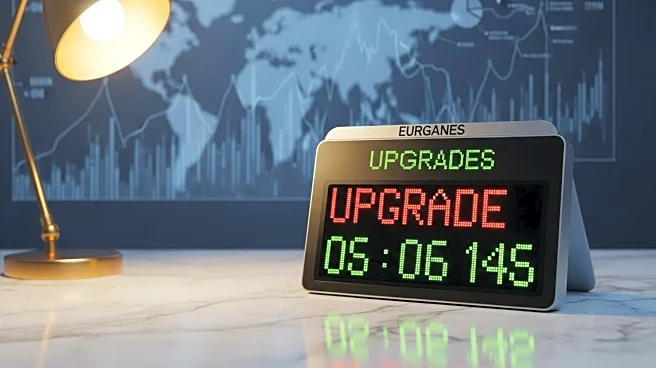What's Happening?
Deutsche Bank has upgraded its stance on European equities from neutral to positive, marking the end of 15 years of underperformance compared to the U.S. The bank cites cheaper valuations, higher diversification, and a strong fiscal impulse as reasons
for the expected upside in European equities until year-end. Despite recent rallies in U.S. stocks, Deutsche Bank believes Europe offers better opportunities due to undemanding valuations and potential earnings growth in sectors like autos, energy, and materials. The Stoxx 600 index is projected to see up to 12% earnings growth in 2026, with Germany and France expected to contribute positively.
Why It's Important?
This shift in investment strategy highlights changing dynamics in global equity markets, with Europe potentially becoming more attractive to investors seeking diversification and growth. The upgrade reflects broader economic trends, including shifts in valuations, debt levels, and market concentration, which may influence investment flows and portfolio allocations. As European markets gain appeal, U.S. markets face challenges such as concentration risks and potential debt ratio concerns, prompting investors to reassess their strategies. The development underscores the importance of regional economic policies and fiscal measures in shaping market performance and investor sentiment.
What's Next?
Investors will likely monitor European economic indicators and fiscal policies to gauge the sustainability of the positive outlook for European equities. Deutsche Bank's projections suggest potential gains across major European indices, prompting investors to consider reallocating assets to capitalize on these opportunities. The U.S. market may continue to perform well, but concentration risks and debt concerns could influence future investment decisions. As geopolitical and economic factors evolve, investors will need to stay informed about regional developments and adjust their strategies accordingly.

















